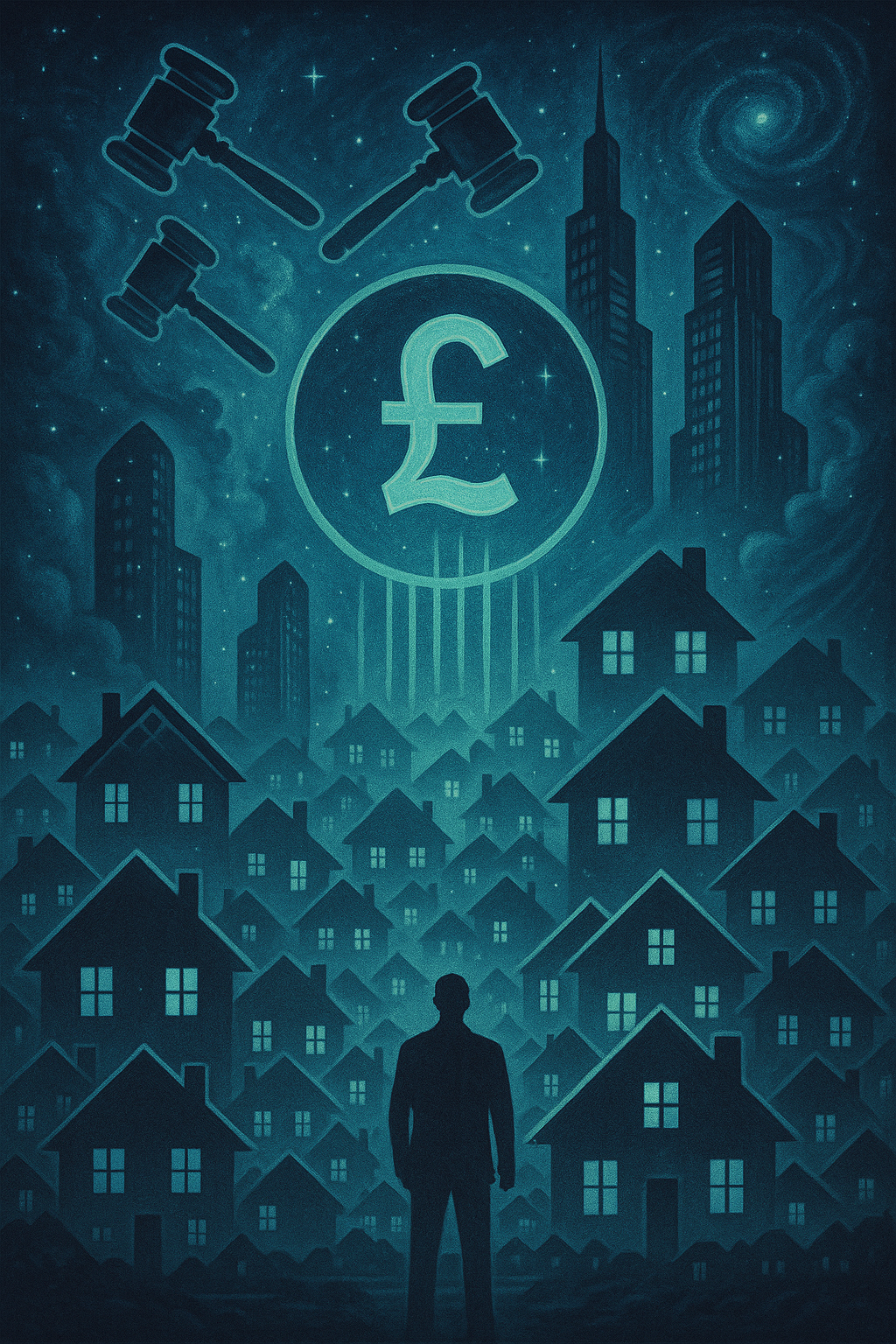The Elite’s Lens: Seeing Terrorists in the Mirror of the People
Popular articles
In the shadowed corridors of British power, a peculiar and troubling perspective has taken root among the establishment elite. To them, the people of this nation—once the bedrock of its storied resilience—are increasingly viewed not as citizens, but as dissidents, terrorists, and problems to be managed. This is not a mere policy quirk or a passing phase; it is a deeply ingrained lens through which the ruling class interprets reality. And it is a lens that distorts, endangers, and ultimately betrays the very principles of liberty and sovereignty that Britain has long claimed to uphold.
The Establishment’s Gaze: A Self-Fulfilling Prophecy
Imagine, for a moment, standing atop the gilded perch of Westminster or the corporate towers of the City of London, peering down at the sprawling mass of the British public. To the elite—the politicians, the technocrats, the media barons, the unaccountable quangocrats—what do they see? Not a diverse tapestry of individuals with rights, dreams, and grievances, but a simmering cauldron of potential threats. A farmer protesting agricultural policy is not a man fighting for his livelihood; he is a disruptor. A parent questioning educational dogma is not a concerned citizen; she is a radical. A worker decrying economic stagnation is not a voice of reason; he is a populist agitator teetering on the edge of extremism.
This perspective is not accidental. It stems from a core belief that the establishment’s worldview—its status quo of centralized control, globalist alignment, and progressive orthodoxy—is not just preferable, but infallible. If they are right, as they must be, then any deviation from their script can only be wrong. And not just wrong in a mundane sense—wrong in a way that threatens the very fabric of order. To question the sanctity of net-zero targets, mass migration policies, or the erosion of civil liberties is not to engage in debate; it is to plant the seeds of chaos. From this vantage point, dissent becomes synonymous with danger, and the people become the enemy within.
The Danger of Absolute Certainty
Herein lies the peril: when you believe your perspective is beyond reproach, it ceases to be a perspective at all—it becomes a doctrine. The British establishment has convinced itself that its vision of society is the only viable one, and this certainty blinds them to alternative realities. They cannot entertain the possibility that the farmer, the parent, or the worker might have a point—because to do so would crack the foundation of their authority. Instead, they double down, interpreting every murmur of discontent as proof of the people’s radicalization. It’s a self-fulfilling prophecy: label someone a terrorist long enough, and they may just grow weary enough to fit the role.
This mindset is not merely arrogant; it is dangerous. When the elite view their own people as adversaries, they justify measures that would have once been unthinkable. Surveillance creeps wider, speech is policed with greater zeal, and dissent is met with batons rather than dialogue. The recent history of Britain offers stark examples: peaceful protests kettled and criminalized, online expression curtailed under vague “hate speech” laws, and ordinary citizens branded as “far-right” for daring to question the orthodoxy. The establishment lashes out, not because the people are truly a threat, but because their warped perspective leaves them no other choice. When you see terrorists in every shadow, you start swinging at shadows.
The People as Scapegoats
This dynamic turns the British public into scapegoats for the elite’s own failures. Economic stagnation? Blame the Brexiteers or the “uneducated” masses, not decades of mismanagement. Social unrest? Point to “disinformation” spread by the unwashed, not the erosion of trust in hollowed-out institutions. The establishment’s perspective absolves them of accountability by reframing their shortcomings as the people’s defiance. It’s a neat trick: if the system falters, it’s not because the system is flawed—it’s because the people are too unruly to fit within it.
Yet this approach is a house of cards waiting to collapse. The more the elite tighten their grip, the more they alienate those they claim to govern. Each heavy-handed response—each protest dispersed, each voice silenced—widens the chasm between ruler and ruled. The danger is not in the people’s dissent, but in the establishment’s refusal to see it as anything other than a mortal threat. By treating their own citizens as enemies, they risk creating the very instability they fear.
A Call to Reframe the Perspective
The solution lies not in silencing the elite—liberty demands they speak—but in exposing their lens for what it is: a distortion born of hubris and insecurity. The British people are not terrorists or dissidents by nature; they are a nation with a proud history of challenging power when it overreaches. The establishment must be made to see that dissent is not a threat to order, but a vital part of it—a pressure valve that prevents collapse. To view the people otherwise is to invite the chaos and be the extremists they claim to abhor.
For the rest of us, the task is clear: reject the scapegoat’s burden and assert our sovereignty. The elite’s perspective may cast us as problems, but we are not defined by their gaze. We are the inheritors of a legacy that prizes freedom over control, reason over dogma. By understanding their mindset—its rigidity, its fear, its peril—we can begin to dismantle its hold, not through violence or upheaval, but through the steady, unrelenting demand to be seen as we truly are: not threats, but citizens.
Subscribe to unlock premium content
Sed at tellus, pharetra lacus, aenean risus non nisl ultricies commodo diam aliquet arcu enim eu leo porttitor habitasse adipiscing porttitor varius ultricies facilisis viverra lacus neque.
The Great Wealth Generation Act 1.0

The Great Democracy Restoration Act

UK Nutrition Act 1.0

The Great Wealth Generation Act 1.0

The Great Democracy Restoration Act

The Great Wealth Generation Act 1.0







